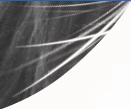Q: What is your reaction to new ideas?
We need to be more open to change and allowing a good idea to give way to a better idea. My philosophy is never think you can't do something because it hasn't been done before.
Q: What’s the best piece of advice you’ve ever been given in regard to training horses?
Training has to be a blend of effort and delight…
Q: What do you do when you come against a training brick wall?
Ask why?…..
1- Is it because I am asking too much for the horse to do mentally or physically
2- Is it because the horse is uncomfortable or in pain
3- Is it because there is something missing in the progressive training which should be put in place
4- Shall I try moving back to something easier
5- Only if the answer to all these questions is ‘No” would I move on to some lateral thinking and imaginative solutions…
Q: Name three things that you look for when you begin to train a horse?
Calmness, forwardness and straightness…they are at the heart of training at any level.
Q: What’s your training formula?
Simplicity and love…laced with buckets of energy.
Q: How to you identify problems with and work on your own performance?
I try to avoid thinking of training problems, which is a negative approach, preferring to look at needs, challenges and goals.
Everyone can benefit from a good coach. Everyone can benefit from regular objective assessment. In tennis, golf, swimming, gymnastics, athletics, football good coaches are an integral part of participating in that sport. We need to do more to make this the norm in equestrian sports.
Q: Aspiring riders will watch you and learn from your techniques. Whose performance do you watch?
We all have our own personnel heroes or role models we watch, or just think about, for different reasons, and see them in our own different ways. Mine would include Herbert Rehbein, Bert de Nemethy, Mark Todd, Nuno Oliveira, Michel Robert, Nelson Pessoa, William Fox-Pitt, Reiner Klimke and Jack le Goff. I would also have other role models from other sports and non-sporting activities, which I think is an important dimension for all performers.
Q: Everybody has days when the prospect of working in a school or arena isn’t a happy one. How do you get over that?
By remembering that Rule No One is ‘have a go.’
By focusing on my aims.
By reminding myself that no day of one’s life can be repeated.
By thinking of past days when poor starts yielded great days
Q: What would you identify as the keys to successful horsemanship?
Rule 1: HAVE A GO – More Action – Do things
– To make this happen there has to be a blend and balance of effort and delight and an individual approach…
– …every rider and horse obviously has different levels of physical and mental ability. As a general rule I work from what a rider and horse can do and as a result build from small successes….therefore working from strengths.
Rule 2: HAVE ANOTHER GO – More Ability – Do things well
– To make this happen there has to be a blend and balance of confidence and competence and an enthusiastic approach…
– …practise doesn’t make perfect it makes permanent. Therefore it is vital that all the small elements, which go to making up a good performance, should habitually be done well, with quality, otherwise time and resources are wasted on retraining and potential is automatically reduced.
Q: Do you have a formula for goal setting?
Plan backwards from your aim and execute forwards with little action steps.
and the situation.
Q: Princess Anne once said that if you didn’t have her “day job”, she’d be a long distance lorry driver. What would you do if you weren’t a successful equestrian?
If it wasn't horses...
I would have tried like hell to:
Run a mile under 4 mns
Be an actor
Have more children
Be a sports journalist
Plant more trees
Eat more strawberry ice cream |




